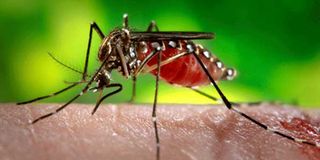Why Tanzania must win war against malaria

What you need to know:
Despite the bleak picture painted by the above facts, a new report by the National Bureau of Statistics, launched on Wednesday in Kigoma, shows that Tanzania has made significant gains in the fight against the disease.
Over 90 per cent of Tanzanians live in areas where there is malaria. It is therefore not surprising that more than 26 per cent of outpatient attendances are attributed to the disease. This brings the country’s total number of malaria cases per year to 7.7 million.
Despite the bleak picture painted by the above facts, a new report by the National Bureau of Statistics, launched on Wednesday in Kigoma, shows that Tanzania has made significant gains in the fight against the disease.
The report, titled 2017 Tanzania Malaria Indicator Survey, shows that new malaria infections for under-five children have dropped to 7.3 per cent in 2017 from 14.4 in 2015.
This is a huge success. The statistical evidence is proof that it is possible to win the war against malaria.
There are valid reasons why the war against malaria should be intensified. At the global level, there are 216 million malaria cases each year. It kills nearly 445,000 people annually. Children under 5 are the most affected, with 60 per cent of all deaths due to malaria occurring in this age group.
Apart from loss of human lives, many resources are lost in handling malaria cases—both in monetary and non-monetary terms. This is without forgetting the suffering patients must endure during the time they are sick.
It is therefore high time that the NBS findings should encourage experts to do more in finding lasting solutions to the problem.
At the same time, all stakeholders should play their role efficiently. These include educating the masses on best practices that can help combat malaria.
Some of the best practices include controlling all mosquito breeding areas, sleeping in treated mosquito nets and applying both internal and external anti-mosquito sprays.
Recent revelations by the Ifakara Health Institute that it has obtained positive results as it develops two malaria vaccines should be supported financially and materially.
We can have zero malaria infections in Tanzania!




